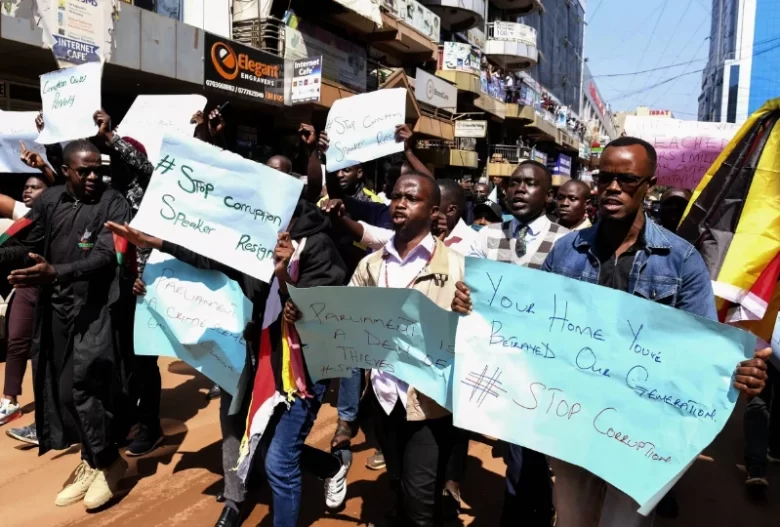At least 42 youths have been charged by a Ugandan magistrate’s court for offenses allegedly committed during a prohibited anti-corruption protest on Tuesday, and have been remanded in custody
On Tuesday, demonstrators took to various streets in the capital city of Kampala, chanting slogans and carrying placards condemning corruption among lawmakers.
According to Bernard Oundo, president of the Uganda Law Society and head of the legal team representing the suspects, at least 42 protesters were charged and remanded after appearing at a magistrate’s court in Kampala late on Tuesday.
Among the offenses listed on the court charge sheet were “idle and disorderly” behavior and being a “common nuisance.”
The accused pleaded not guilty and were ordered to return to court on various dates between July 30 and August 6.
Human Rights Watch, a New York-based rights group, stated that the arrests highlighted President Yoweri Museveni’s government’s “lack of respect for people’s right to protest and express themselves.”
Oryem Nyeko, senior Africa researcher at Human Rights Watch, remarked, “Rather than being arrested and prevented from protesting, these individuals should have been given a platform and heard.”
Repeated attempts to contact the police spokesperson for comment went unanswered. This has left the situation surrounding the recent arrests somewhat unclear.
Opposition leaders and rights activists argue that embezzlement and the misuse of government funds are pervasive issues in Uganda.
They claim that these problems are not only widespread but also deeply entrenched within the political system.
Critics have long accused President Museveni of failing to address corruption effectively.
They point out that senior officials involved in corruption often remain unprosecuted due to their political loyalty or familial connections to the president.
These accusations highlight ongoing concerns about the government’s commitment to tackling corruption and ensuring accountability within its ranks.
President Museveni has consistently denied tolerating corruption, asserting that whenever sufficient evidence is available, those involved—including lawmakers and ministers—are arraignes.
In anticipation of Tuesday’s march, the military and police were heavily deployed across the city in an effort to deter the protest.









Got a Question?
Find us on Socials or Contact us and we’ll get back to you as soon as possible.